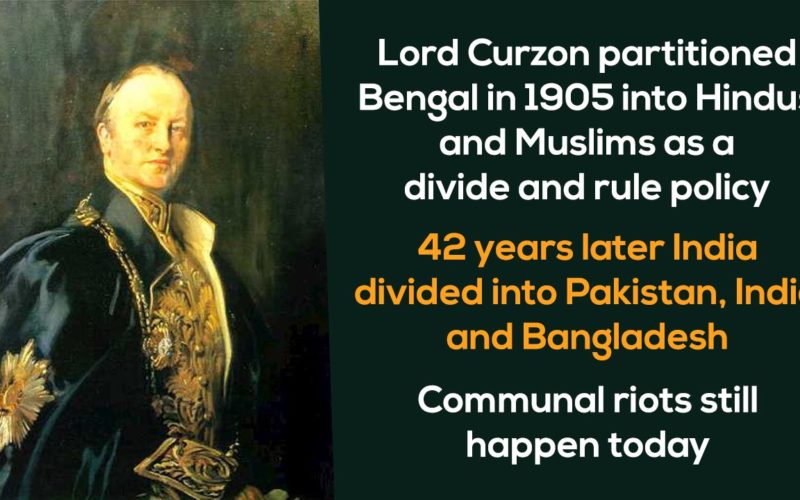- 1.9Kshares
- Share
- Tweet
- Facebook Messenger
It all started in 1857, when India as an apparent unit started to become nationalist. Before this, India was the easiest to rule. So many small provinces to conquer and annex – the British probably went through checkboxes one by one as they took over the whole subcontinent.
But then this Mangal Pandey guy came along and everyone stood by him. Before this, the British had never seen a coordinated uprising they had to face. They faced mutiny in their own army. It was worrying for them – Indians getting united. Because even after all their racial superiority argument and colonial power, the natives of the Indian subcontinent still outnumbered them by the thousands.
So they went back to their thinking table and came up with the tried and tested formula – divide and rule.
And then they got to work.
1. They started the regiment system in the Indian army. Hindus and Muslims were not allowed to be in the same regiment anymore – sowing a divide according to religion
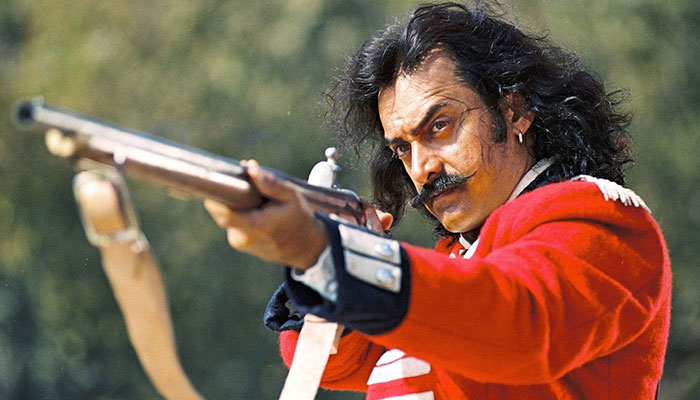
And not just that, they even removed a majority of Hindu Brahmins and Muslims from the army. This meant that the majority in the Indian population did not have any significant representation in the army anymore.
They took a lot of Sikhs and Gurkhas into the army because they were the minority in India. This meant that the British will not see any popular uprising anymore. Minorities are easier to control.
And that’s how the British introduced the strict regiment system in the army, which still exists even today.
2. It was actually the British who started the much-criticized reservation system in India in the name of “equality”
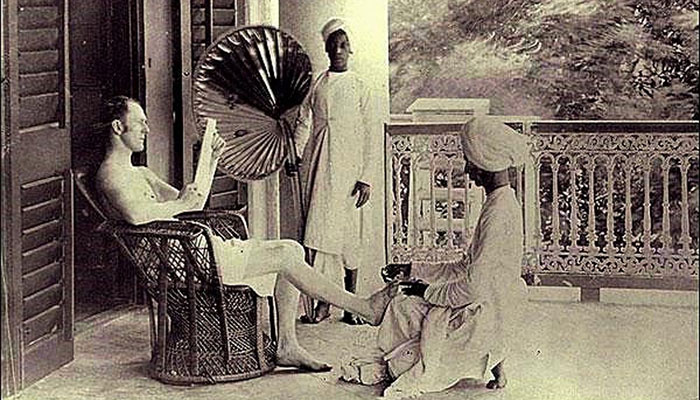
“If any community could claim the British out of the country, it was the Brahmin community. 70% of them, who were felled by British bullets, were Brahmins.”
The British didn’t really care about equality as long as they became rich by sucking India dry. Back in the early 1900s, the only educated class was the upper-class Hindus and Muslims. This part of the society was learned and hated the British.
So the British introduced reservations in government jobs – specifically in civil services “so that they might get equal opportunity.” In 1881 they started “empowering” the other castes and races. This in return won them the empathy of the people they showed preference.
They also portrayed the image of Brahmins as the oppressors of the lower castes, which was not true as the zamindars were the ones who exploited the poor.
But this tactic worked. After Independence, we continued reservation and we still have the system in both education and employment today. And politicians still play the caste card to win votes today. Hell, they play it exactly like the British. Classic example – UP politics.
3. They deliberately excluded the untouchables from the earlier census so that they would be aware
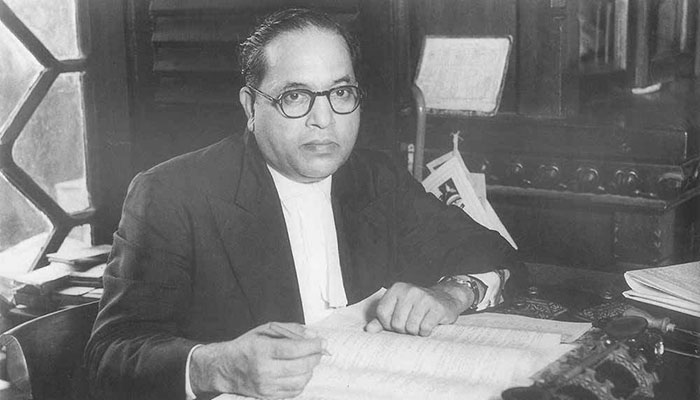
If they were so pro-equality, why would they exclude untouchables from the census? This exclusion made the untouchables aware of their exclusion even more. Dalit rights champion Babasaheb Ambedkar had to step in and fight for equal rights.
And how did he fight? By demanding reservations. The same way the British did so that the lower castes get equal rights.
Many national leaders at the time opposed this saying that it would promote casteism even further, because now they are deliberately segregated.
Lal Bahadur Shastri called this “A shameless episode of the national history of the country.”
And even today, caste-based violence is still prevalent throughout the country.
4. The partition of Bengal – a masterstroke by the British to silence the politically active Bengalis
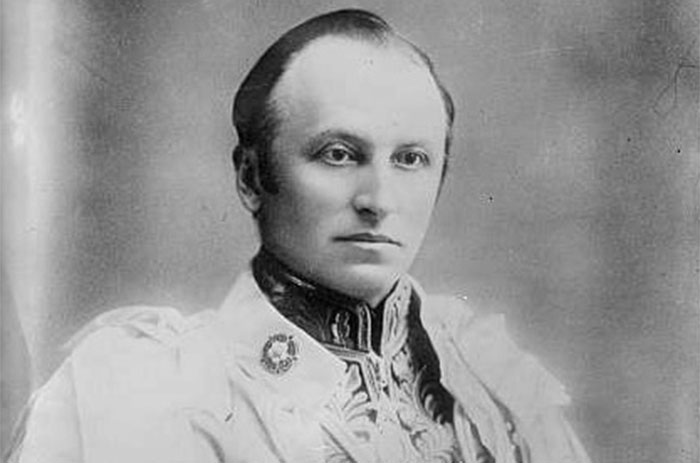
Even today every person who comes out of Bengal is politically charged from their birth. It was the same before independence too – no matter if the Bengali was Hindu or Muslim.
Lord Curzon, who was the Viceroy of India at the time came up with the brilliant idea to separate Bengal into two areas – Hindus and Muslims. He reasoned that the partitioned areas would be easier to administer. Bengalis called it bullshit, but the partition happened nonetheless.
This forced the Muslims to form a national organization.
By 1911, due to the overwhelming opposition, the partition was rolled back, but the damage was already done. There was a rift of religion in Bengal, and the Muslims now knew that they could ask for a separate state if they wanted.
Which is exactly what happened in 1947. Bengal was partitioned permanently.
5. Separate electorates for Hindus and Muslims and promoting Muslim League
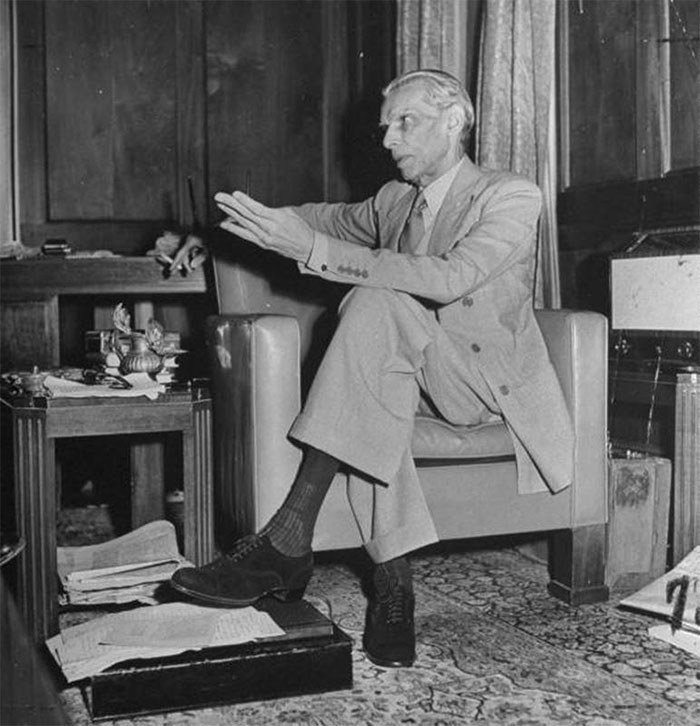
Before the British came up with the idea of making the Hindus vote for the Hindus and Muslims vote for the Muslims, Indians were not really that aware of their separate religious identities. But when British introduced this system, Muslims needed to form their organizations and Muslim League was one of them. The British supported this completely, even called them the only voice of the Muslim population in the subcontinent.
And who was against this? Muhammad Ali Jinnah – the father of Pakistan. He even wrote an angry letter to the Viceroy at the time, complaining that this would result in a rift. But what the Indian leaders didn’t realize is that a rift is what the British wanted.
The end result – communal feelings that resulted in the partition of India and deaths of millions of people. And we still have a brutal history of communal violence resulting due to these actions.
And let’s not even start talking about Kashmir.
The seeds British sowed half a century ago are in full blossom even today. We still add fringe castes into the reservation system. Communal tensions are still very high.
And the worst of all – India and Pakistan hate each other as much as North Korea hates the South – even though they look the same, eat the same food, speak the same language. There is no end in sight either.
The British leaders who orchestrated the whole thing must be laughing heartily in their graves.
Fact Source – Divide and Rule: British Policy in Indian History
You can read online for free.
- 1.9Kshares
- Share
- Tweet
- Facebook Messenger




